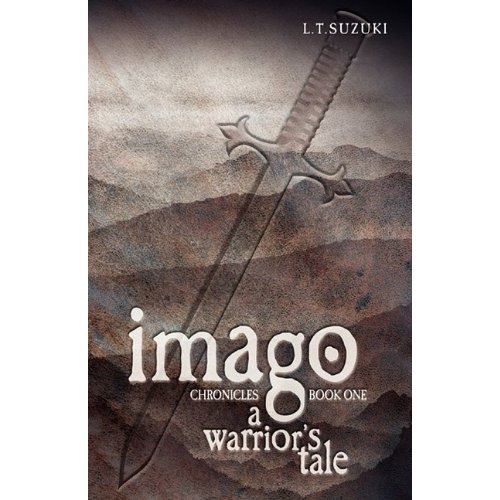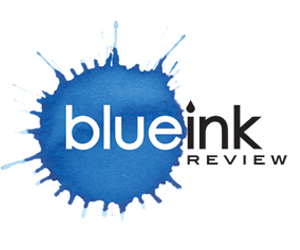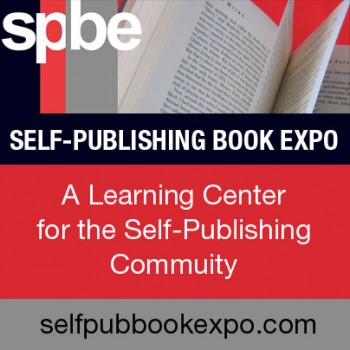Today we have author Lorna Suzuki on the blog to talk about her books, self-publishing, and how her work was optioned for a movie! We hope you enjoy. Leave some comments below and enter our giveaway to win one of Lorna’s books!
Tell us a little about your book series:
I have two series available at the moment. One is a YA fantasy called The Dream Merchant Saga that I co-wrote with my teenaged daughter, Nia. Some readers have described it as ‘Ella Enchanted’ meets ‘The Princess Bride’ and the reviews have been wonderful so far!
The other is the Imago Chronicles series, of which the first three of the nine novels have been optioned for a major motion picture trilogy. This epic fantasy has an ensemble cast of characters, but the central character is a female. She is half human and half elf, and being the only one of her kind in her realm, she is shunned by one race and denied by the other. To make matters worse, she faces a long, hard struggle in proving her worth when she enters the male-dominated arena of warriorship to become a great leader and a captain of legend, and she does this without supernatural powers or super human strength.
When did you start writing the Imago Series?
I lost my job back on Feb. 6th, 2002 and I started writing the Imago Chronicles the very next day. The idea had been percolating in the back of my mind to write prior to this, but the real incentive or push came after I had no job to go to, so the first novel was started on Feb. 7th ten years ago.
How did you make the decision to self-publish?
The decision to self-publish was easy for me. When I wrote the first book, it was meant as nothing more than a gift for my daughter when she grows up. Word got around to those who studied martial arts with me and they asked if they could read it, too. It managed to land in the hands of a librarian who got it into the local libraries. Since then, I’ve had a couple offers to have it traditionally published, even one from then-editor Jessie Finkelstein of Raincoast Books (publisher of the Harry Potters series in Canada). She loved the female protagonist, but I had to say “Thank you, but no” when I was asked if I’d be willing to rewrite the entire series so it was suitable for a YA audience.
To this day, even with the books heading into movie development for worldwide theatrical release, I am still self-published and at this point in the game, I’d have to have very good reason to go traditional!
Did you make any mistakes early on that you wish you could have avoided?
Ten years ago, my earliest novel was not professionally edited and I didn’t know of critique groups when I published the first book, but back then, my only intended audience was to be my daughter. Since then, I’ve attended writers’ conferences to hone my skills and I’ve learned from some of the best like Diana Gabaldon, Terry Brooks and Jack Whyte to name a few.
How did the Imago Chronicles attract the attention of a movie studio?
Some say it was sheer writing talent, but I’m not that gullible. I know in this business, a lot has to do with luck. In my case, it was a situation of the stars aligning, I think. A film producer happened to see an interview and martial arts demonstration I did on MTV and I think using my book as a weapon stuck in her mind. She ended up buying and reading the first the books in the series. She fell in love with the stories and the characters, and thus began a 3-year odyssey to track me down and option these books for a major motion picture trilogy.
What is key advice you would give an author who is negotiating film rights?
If you don’t have an agent with experience in negotiating film rights, then hire an entertainment lawyer who does. Never sign without understanding the terms, language, what the industry standards are. My lawyer, Kim Roberts, also happens to be a producer with Sepia Films, so he knew exactly what he could push for and what was reasonable in negotiating the option agreement for me as well as what conditions would keep the project moving forward than getting stuck in long-term option hell. He told me that sadly, he is aware of many writers who option their works for a mere $1 (to make the contract legally binding) because they’re desperate to get noticed and often get locked into long-term option agreements with little or no pay-off. I’ve even spoken to couple writers who did this, hoping it would lead to a traditional publishing deal and more, but it didn’t. As my lawyer warned me, many producers who do not offer a decent option fee usually lack the funds to get the project going in the first place.
Once the high of being offered an option agreement passes, do your homework to better understand what is involved in such an agreement and have someone with the legal expertise negotiate a contract that you can be happy with. Unless you’re an expert, don’t go it alone. There’s so much more than negotiating a decent option fee and purchase price for your novel. Details of an option agreement can include everything from percentages of subsidiary rights and even details of attending movie premiers, so do your homework.
Thank you so much for stopping by our blog Lorna!
About Lorna Suzuki:
I‘m a script writer & creator of the Imago Fantasy series. My books have been optioned for a major motion picture trilogy. Pre-production is underway!
__________________________________
GIVEAWAY









Follow Us!